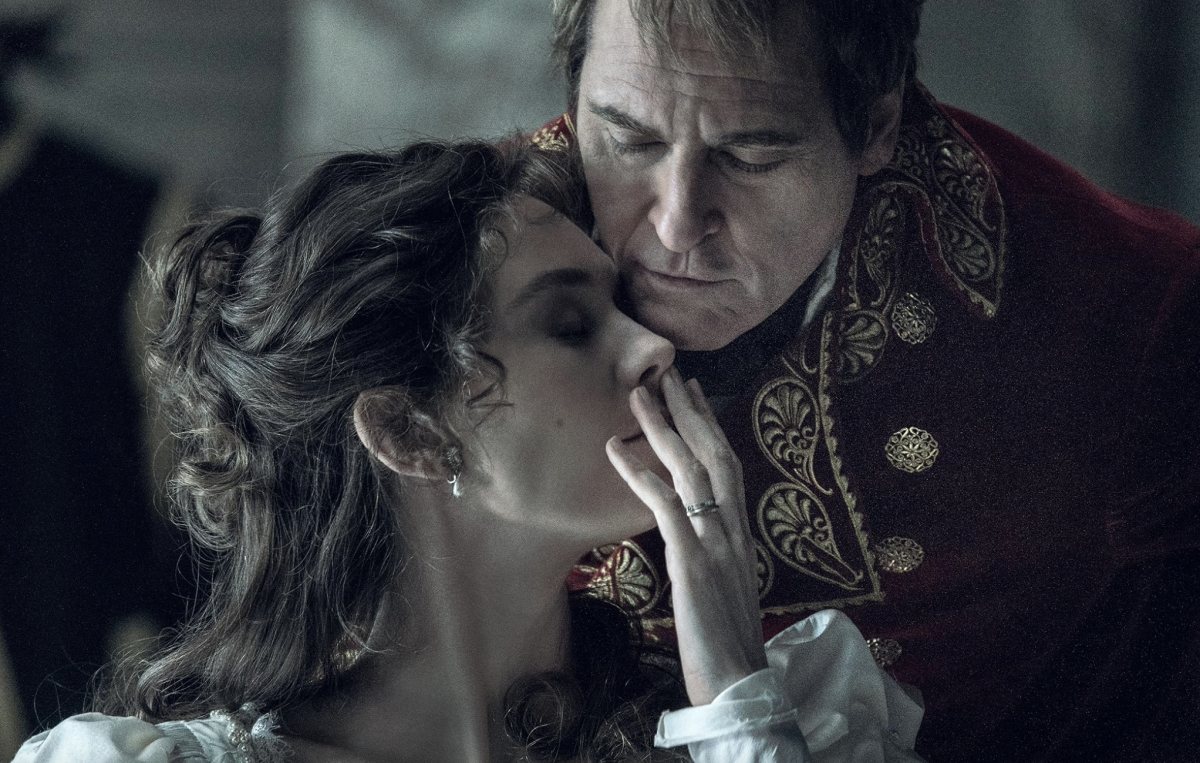
The passionate love story between Napoleon and Josephine is the centre of Ridley Scott’s film. Photo: Supplied.
It would be fair to say the two most anticipated films of 2023 (OK, three if you count Barbie) have been Oppenheimer and Napoleon.
And with good reason.
Oppenheimer was a triumph of a troubled character who invented something that once out of Pandora’s Box, would never be allowed back in.
Ridley Scott’s Napoleon explores the life of the last great French emperor who rose from a Corsican soldier to win several important battles and finally claim the crown after the French Revolution’s Reign of Terror. He ruled France for 15 years and was exiled twice.
But what does Ridley Scott seek to explore in this most excellent period drama, featuring Joaquin Phoenix, in a welcome return to acting, and the extraordinary Vanessa Kirby as Josephine?
As it’s a historical film, there really are no spoiler alerts. David Scarpa dutifully writes in all the major battles and losses, particularly the Russian campaign, Napoleon’s exile to Elba, and fateful return to France to take on a massive Army. Of course he loses, and is exiled to St Helena, where he lives out his last years.
And don’t be mistaken, Scott’s battle scenes are some of the best and bloodiest you’ll ever see. His eye for historical accuracy is completely on point.
But what intrigued me more about Bonaparte was his relationship with Josephine. She’d been a jailed aristocrat whose husband died in the purge and her only way to survive, she tells Napoleon, was to get pregnant.
In one very intimate scene, the film explores the tempestuous, passionate nature of their relationship, yet when he is away fighting in Egypt, she takes on a lover.
On his return, she’s almost thrown out but she retaliates, telling him he’s a poor, stupid Corsican who could never do better in life (he admits having affairs as well).
Eventually, they reach a detente and decide that their love is greater than their disagreements, but the one crucial problem is she cannot bear him an heir.
That is where everything begins falling apart. He divorces, remarries, has a baby but never ever stops loving Josephine. They write almost every day, but circumstance has overtaken them, and they have to live with it.
In Scarpa and Scott’s story, he is only half the man without her. His greatest defeats only come after they are separated.
I can’t speak to artistic licence on this matter, but it is true that the Russian campaign and his dreadful loss at Waterloo did happen after they were divorced.
I suppose we’ll never fully comprehend their letters between one another, although fragments of them exist in various places. What is certain, however, is the abiding love and commitment they had for each other – a passion so overwhelming it is breathtaking.
Here’s a snippet of one from 1796…
I am going to bed with my heart full of your adorable image … I cannot wait to give you proofs of my ardent love … How happy I would be if I could assist you at your undressing, the little firm white breast, the adorable face, the hair tied up in a scarf a la creole.
And what a pair of performances. Phoenix has not been more restrained than since he played Johnny Cash, bringing enormous subtlety and grace to the role. But for me, Vanessa Kirby, with all her troubling conflicts and passions, totally owns this film. And Ridley Scott brings out the best in the both of them. Five stars out of five.
Marcus Kelson is a Canberra critic and writer. Napoleon is showing at major cinema chains.













